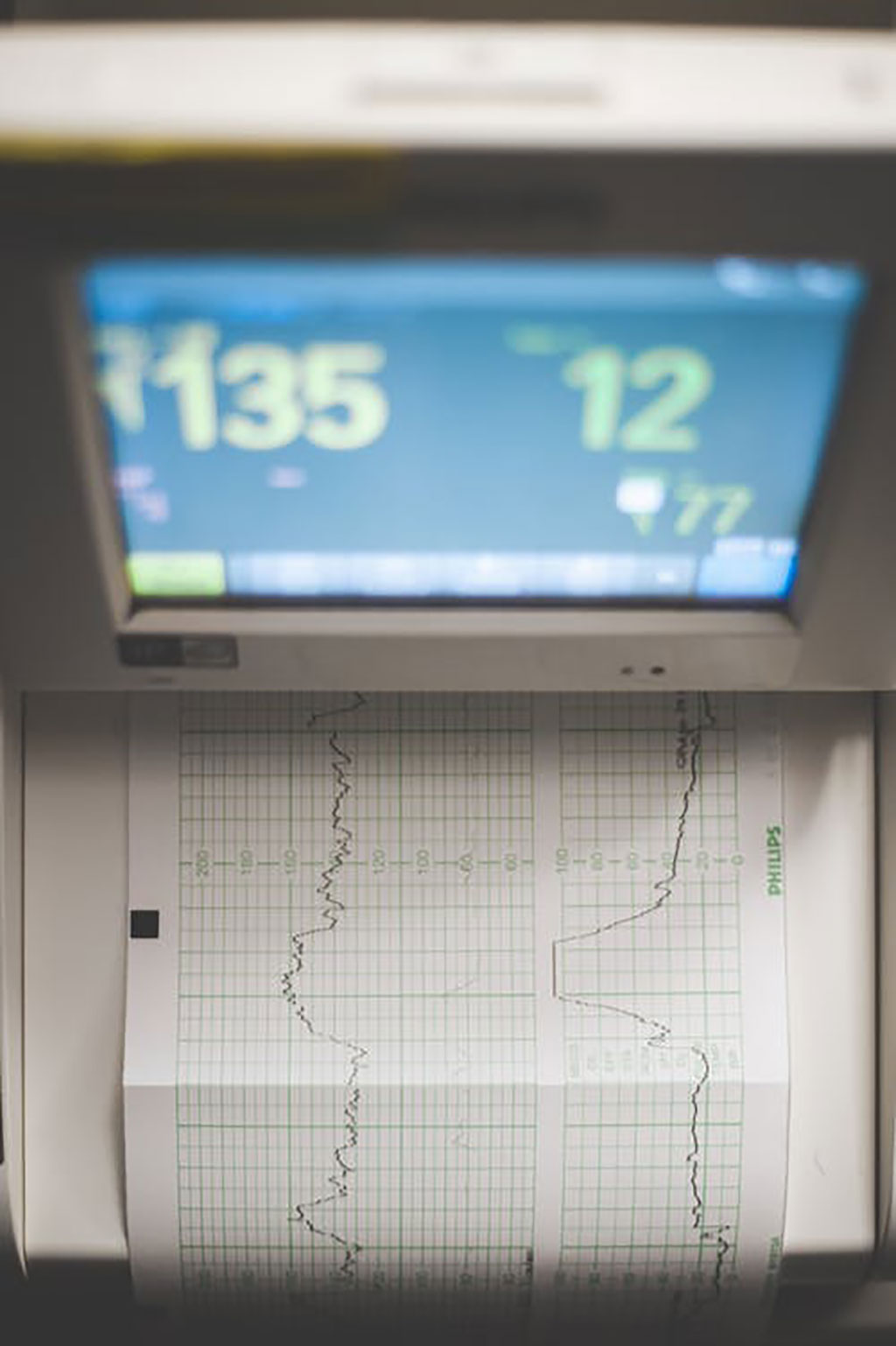AI-Based Method Predicts Atrial Fibrillation Risk Based on ECG Results
|
By HospiMedica International staff writers Posted on 24 Nov 2021 |

Investigators have developed and tested an artificial intelligence (AI)-based method for predicting an individual’s five-year risk of developing atrial fibrillation, or an irregular heartbeat, from electrocardiogram results.
The method developed by researchers at the Massachusetts General Hospital (MIG; Boston, MA, USA) could be used to identify patients who might benefit from preventative measures. Atrial fibrillation—an irregular and often rapid heart rate—is a common condition that often leads to the formation of clots in the heart that can travel to the brain to cause a stroke. MIG researchers developed the AI-based method to predict the risk of atrial fibrillation within the next five years based on results from electrocardiograms (non-invasive tests that record the electrical signals of the heart) in 45,770 patients receiving primary care at MGH.
Next, the scientists applied their method to three large data sets from studies including a total of 83,162 individuals. The AI-based method predicted atrial fibrillation risk on its own and was synergistic when combined with known clinical risk factors for predicting atrial fibrillation. The method was also highly predictive in subsets of individuals such as those with prior heart failure or stroke. The algorithm could serve as a form of pre-screening tool for patients who may currently be experiencing undetected atrial fibrillation, prompting clinicians to search for atrial fibrillation using longer-term cardiac rhythm monitors, which could in turn lead to stroke prevention measures. The study’s findings also demonstrate the potential power of AI—which in this case involve a specific type called machine learning—to advance medicine.
“We see a role for electrocardiogram-based artificial intelligence algorithms to assist with the identification of individuals at greatest risk for atrial fibrillation,” said senior author Steven A. Lubitz, MD, MPH, a cardiac electrophysiologist at MGH and associate member at the Broad Institute.
“The application of such algorithms could prompt clinicians to modify important risk factors for atrial fibrillation that may reduce the risk of developing the disease altogether,” added co–lead author Shaan Khurshid, MD, MPH, an electrophysiology clinical and research fellow at MGH.
Related Links:
Massachusetts General Hospital
Latest Patient Care News
- Portable Biosensor Platform to Reduce Hospital-Acquired Infections
- First-Of-Its-Kind Portable Germicidal Light Technology Disinfects High-Touch Clinical Surfaces in Seconds
- Surgical Capacity Optimization Solution Helps Hospitals Boost OR Utilization

- Game-Changing Innovation in Surgical Instrument Sterilization Significantly Improves OR Throughput
- Next Gen ICU Bed to Help Address Complex Critical Care Needs
- Groundbreaking AI-Powered UV-C Disinfection Technology Redefines Infection Control Landscape
- Clean Hospitals Can Reduce Antibiotic Resistance, Save Lives
- Smart Hospital Beds Improve Accuracy of Medical Diagnosis
- New Fast Endoscope Drying System Improves Productivity and Traceability
- World’s First Automated Endoscope Cleaner Fights Antimicrobial Resistance
- Portable High-Capacity Digital Stretcher Scales Provide Precision Weighing for Patients in ER
- Portable Clinical Scale with Remote Indicator Allows for Flexible Patient Weighing Use
- Innovative and Highly Customizable Medical Carts Offer Unlimited Configuration Possibilities
- Biomolecular Wound Healing Film Adheres to Sensitive Tissue and Releases Active Ingredients
- Wearable Health Tech Could Measure Gases Released From Skin to Monitor Metabolic Diseases
- Wearable Cardioverter Defibrillator System Protects Patients at Risk of Sudden Cardiac Arrest
Channels
Critical Care
view channel
Ingestible Smart Capsule for Chemical Sensing in the Gut Moves Closer to Market
Intestinal gases are associated with several health conditions, including colon cancer, irritable bowel syndrome, and inflammatory bowel disease, and they have the potential to serve as crucial biomarkers... Read moreNovel Cannula Delivery System Enables Targeted Delivery of Imaging Agents and Drugs
Multiphoton microscopy has become an invaluable tool in neuroscience, allowing researchers to observe brain activity in real time with high-resolution imaging. A crucial aspect of many multiphoton microscopy... Read more
Novel Intrabronchial Method Delivers Cell Therapies in Critically Ill Patients on External Lung Support
Until now, administering cell therapies to patients on extracorporeal membrane oxygenation (ECMO)—a life-support system typically used for severe lung failure—has been nearly impossible.... Read moreSurgical Techniques
view channel
Pioneering Sutureless Coronary Bypass Technology to Eliminate Open-Chest Procedures
In patients with coronary artery disease, certain blood vessels may be narrowed or blocked, requiring a stent or a bypass (also known as diversion) to restore blood flow to the heart. Bypass surgeries... Read more
Intravascular Imaging for Guiding Stent Implantation Ensures Safer Stenting Procedures
Patients diagnosed with coronary artery disease, which is caused by plaque accumulation within the arteries leading to chest pain, shortness of breath, and potential heart attacks, frequently undergo percutaneous... Read more
World's First AI Surgical Guidance Platform Allows Surgeons to Measure Success in Real-Time
Surgeons have always faced challenges in measuring their progress toward surgical goals during procedures. Traditionally, obtaining measurements required stepping out of the sterile environment to perform... Read moreHealth IT
view channel
Printable Molecule-Selective Nanoparticles Enable Mass Production of Wearable Biosensors
The future of medicine is likely to focus on the personalization of healthcare—understanding exactly what an individual requires and delivering the appropriate combination of nutrients, metabolites, and... Read more
Smartwatches Could Detect Congestive Heart Failure
Diagnosing congestive heart failure (CHF) typically requires expensive and time-consuming imaging techniques like echocardiography, also known as cardiac ultrasound. Previously, detecting CHF by analyzing... Read moreBusiness
view channel
Expanded Collaboration to Transform OR Technology Through AI and Automation
The expansion of an existing collaboration between three leading companies aims to develop artificial intelligence (AI)-driven solutions for smart operating rooms with sophisticated monitoring and automation.... Read more

















